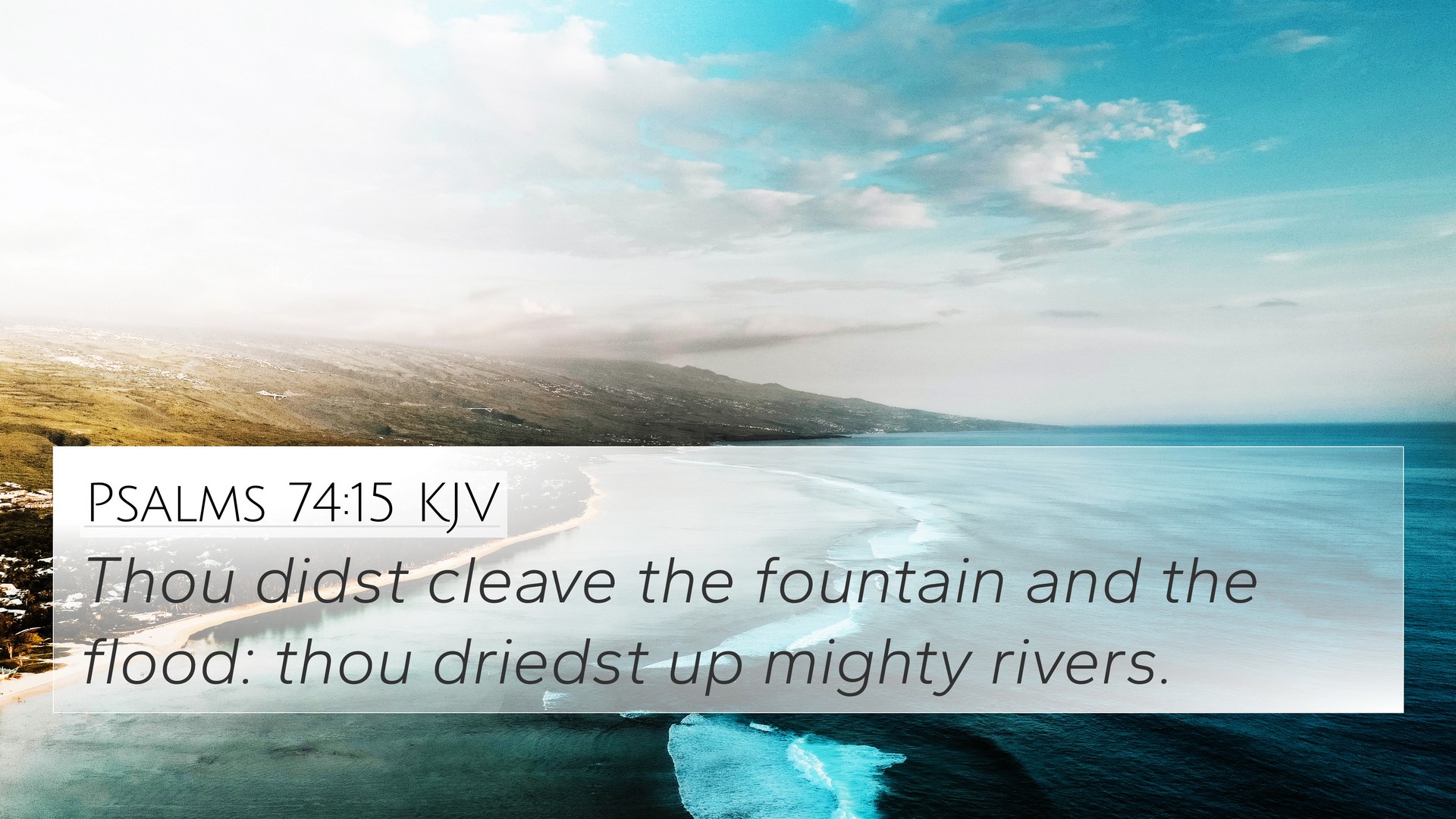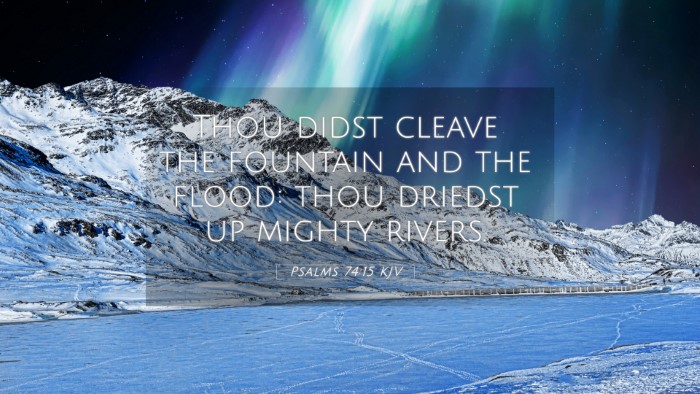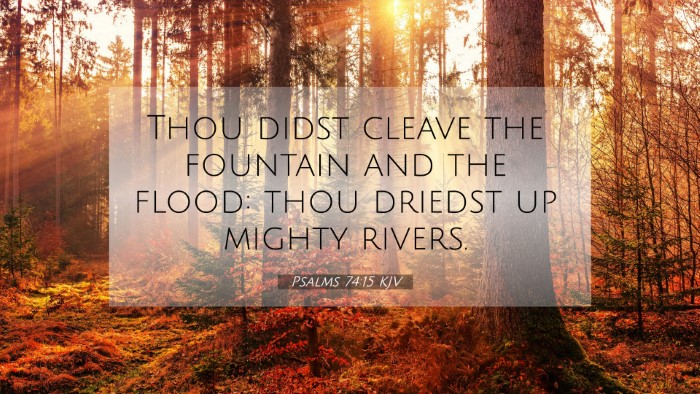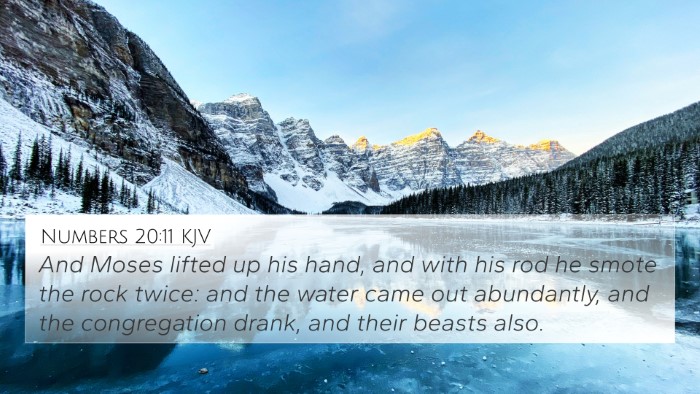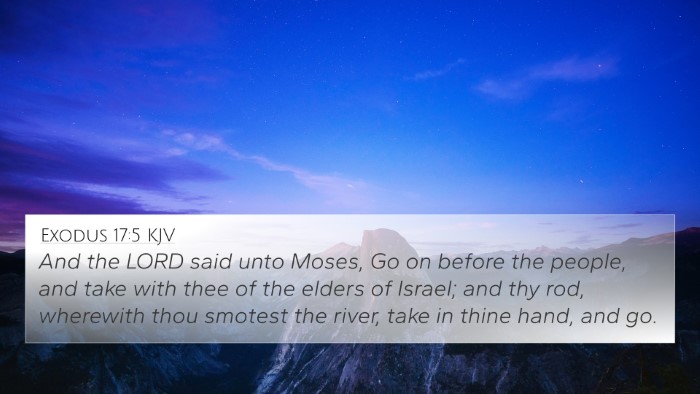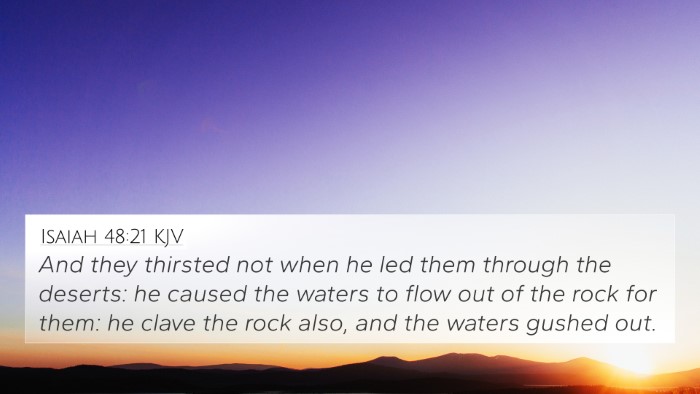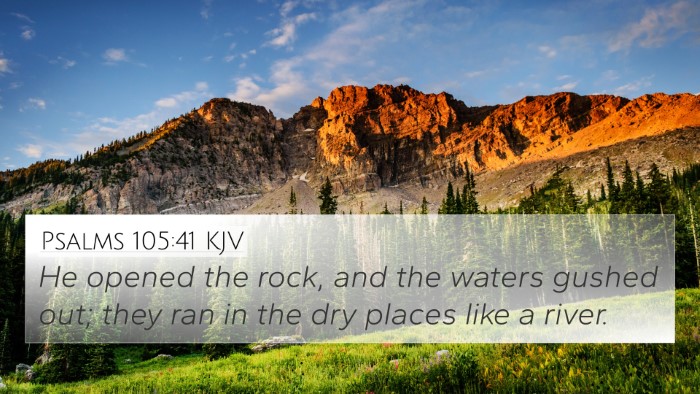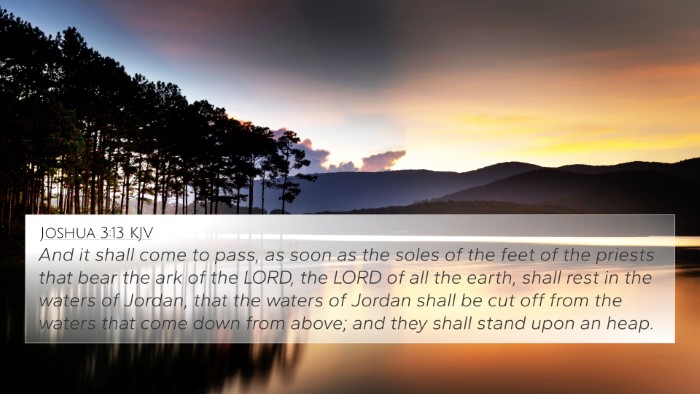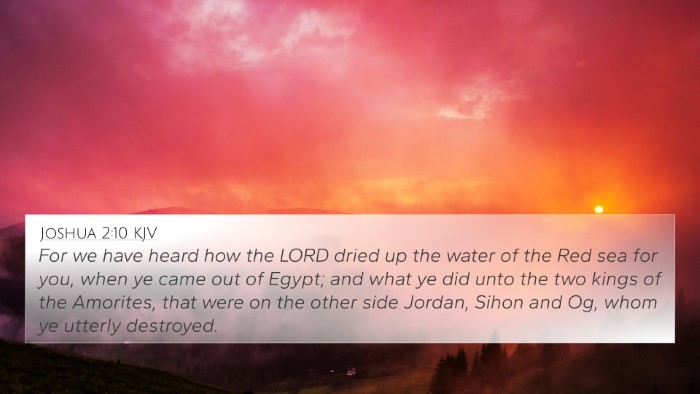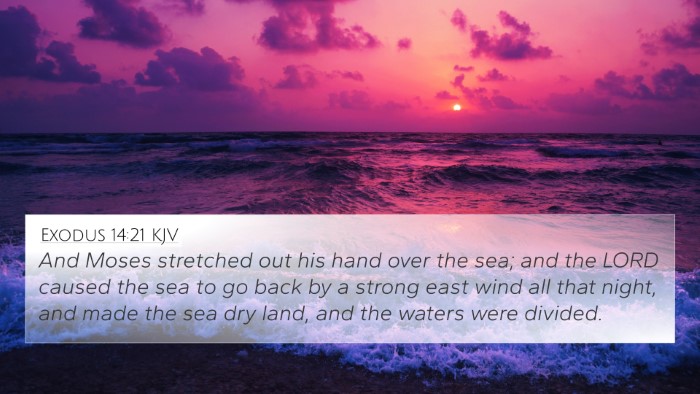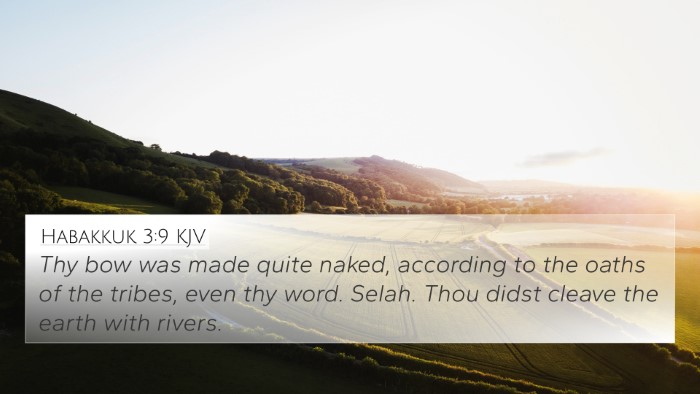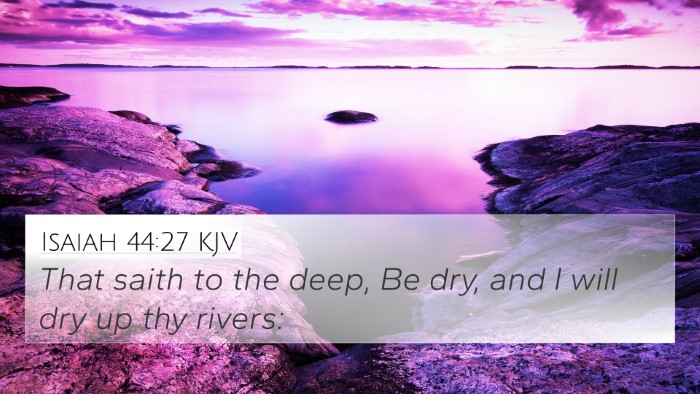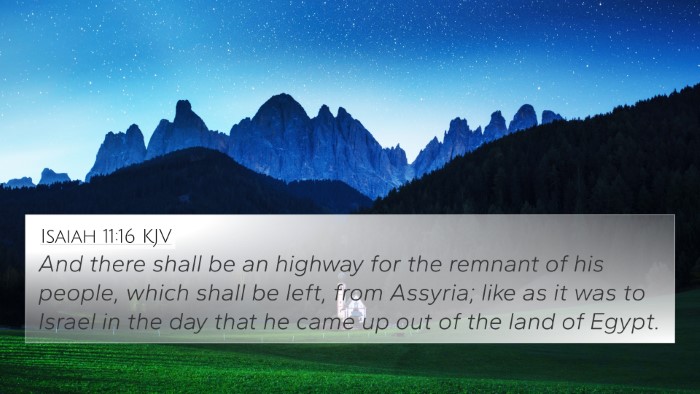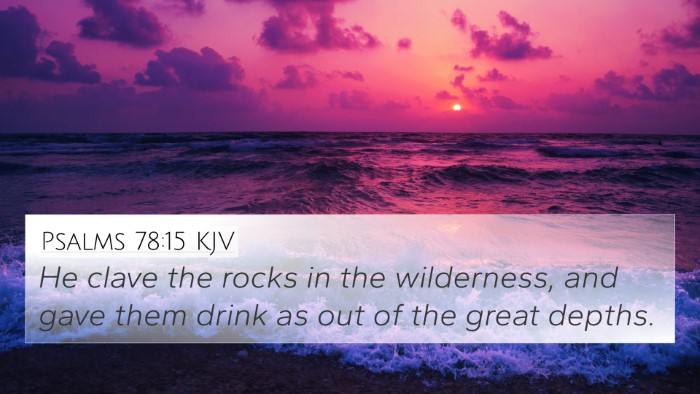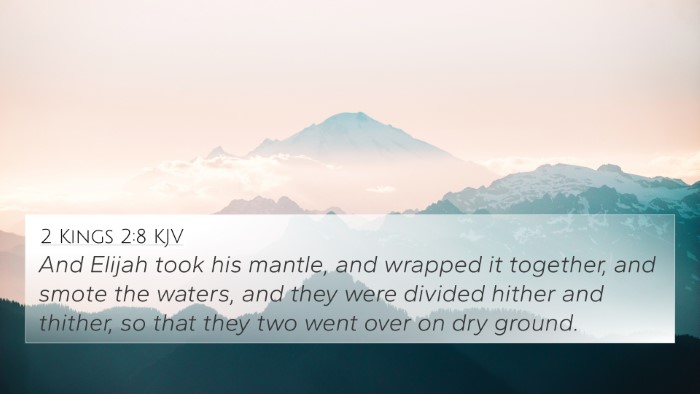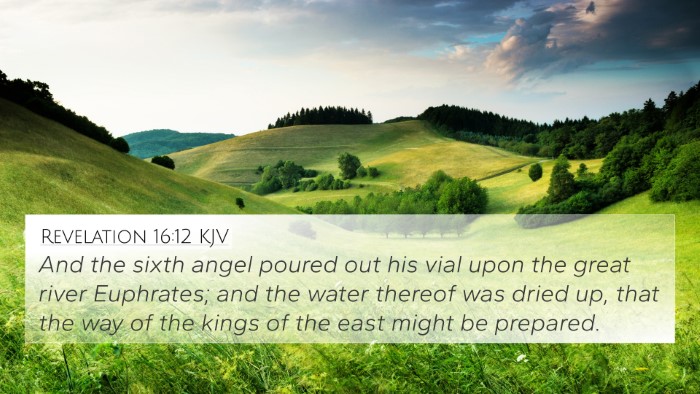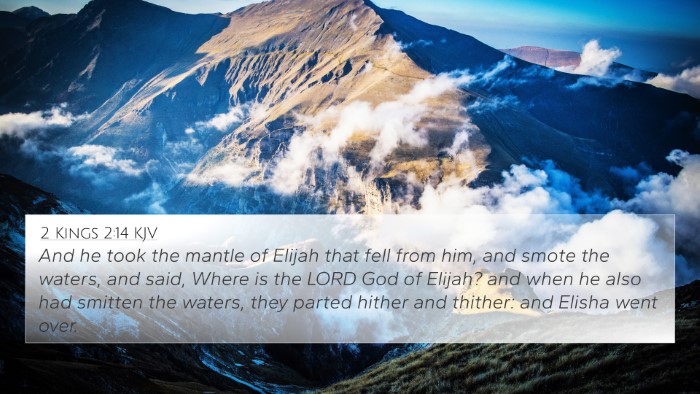Psalms 74:15 - Meaning and Interpretation
Psalms 74:15 states: "Thou didst cleave the fountain and the flood: thou driedst up mighty rivers." This verse serves as a remarkable reminder of God's omnipotence and His ability to control nature itself. Through an examination of various public domain commentaries—including insights from Matthew Henry, Albert Barnes, and Adam Clarke—we can obtain a deeper understanding of this verse's meaning, its context, and its relevance throughout Scripture.
Contextual Background
This Psalm is attributed to Asaph and reflects a period of national distress for Israel. It is a lament that seeks divine intervention in a time when God's people feel abandoned and oppressed. The context emphasizes God's historical acts of salvation and power, serving as a reminder of His capabilities to rescue and renew.
Commentary Insights
-
Matthew Henry:
Henry notes that the verse underscores God’s power as the Creator who can disrupt natural order at will. The cleaving of fountains and the drying up of rivers depict God's sovereignty over creation and His ability to perform miracles, which should instill hope in believers.
-
Albert Barnes:
Barnes emphasizes the literal sense of the imagery, suggesting that it refers to God's past interventions during the exodus and other historical events. This serves as a reminder of Israel's deliverance, encouraging the faithful that God can act again to save His people.
-
Adam Clarke:
Clarke points out that the reference to “mighty rivers” symbolizes powerful nations. In this light, the verse denotes God’s supremacy not just over nature but also over political entities, affirming that He can thwart any plans contrary to His purposes.
Thematic Connections to Other Scriptures
Psalms 74:15 illustrates themes of divine power and intervention that resonate throughout the Bible. Here are pertinent cross-references that relate to this verse:
- Psalms 78:15: "He clave the rocks in the wilderness, and gave them drink as out of the great depths." - Showcases God’s miraculous provision.
- Psalms 114:3: "The sea saw it, and fled: Jordan was driven back." - Highlights God’s power over natural elements.
- Isaiah 43:2: "When thou passest through the waters, I will be with thee; and through the rivers, they shall not overflow thee." - Promises God’s presence during trials.
- Exodus 14:21: "And Moses stretched out his hand over the sea; and the Lord caused the sea to go back by a strong east wind all that night." - God’s control over nature in deliverance from Egypt.
- Joshua 3:13: "And it shall come to pass, as soon as the soles of the feet of the priests that bear the ark of the Lord, the Lord of all the earth, shall rest in the waters of Jordan, that the waters of Jordan shall be cut off." - A vivid example of God’s command over rivers.
- Job 38:10-11: "And said, Hitherto shalt thou come, but no further: and here shall thy proud waves be stayed?" - Illustrates God’s authority over the sea.
- Revelation 21:6: "It is done. I am Alpha and Omega, the beginning and the end. I will give unto him that is athirst of the fountain of the water of life freely." - References God as the source of life-giving water.
- Hebrews 11:29: "By faith they passed through the Red sea as by dry land: which the Egyptians assaying to do were drowned." - Affirming the faith in God's miraculous acts.
- Luke 8:24: "And they came to him, and awoke him, saying, Master, Master, we perish. Then he arose, and rebuked the wind and the raging of the water: and they ceased, and there was a calm." - Jesus demonstrates authority over nature.
- Romans 8:31: "What shall we then say to these things? If God be for us, who can be against us?" - Assurance of God's protection and power in the life of believers.
The Significance of Cross-Referencing Biblical Texts
Understanding Psalms 74:15 in light of these other scriptures enhances our grasp of the Bible's coherent narrative concerning God’s power and faithfulness. Exploring these connections between Bible verses provides a richer understanding and encourages a thematic Bible verse analysis that is beneficial in personal study or group settings.
Tools for Bible Cross-Referencing
Various tools for Bible cross-referencing can aid in discovering the interconnectedness of scriptures. Utilizing a Bible concordance, or employing a Bible cross-reference guide can deepen your study, revealing how themes and messages resonate across different books of the Bible. Here are some common methods:
- Bible Cross-Reference System: Familiarize yourself with systems that categorize verses thematically.
- Cross-Referencing Bible Study Methods: Engage with systematic approaches to study similar texts in context.
- Bible Chain References: Use parallel passages to understand how scripture interprets scripture.
- Comprehensive Bible Cross-Reference Materials: Explore commentaries, study Bibles, and databases that compile cross-references.
Conclusion
Psalms 74:15 reminds us of God's unmatched sovereignty and ability to provide and protect. By delving into this verse and its cross-references, we not only gain a deeper understanding of the historical and literary context but also enrich our spiritual journey. The connections forged through scriptural cross-referencing solidify our faith and invite us to trust in God’s power throughout all circumstances.
